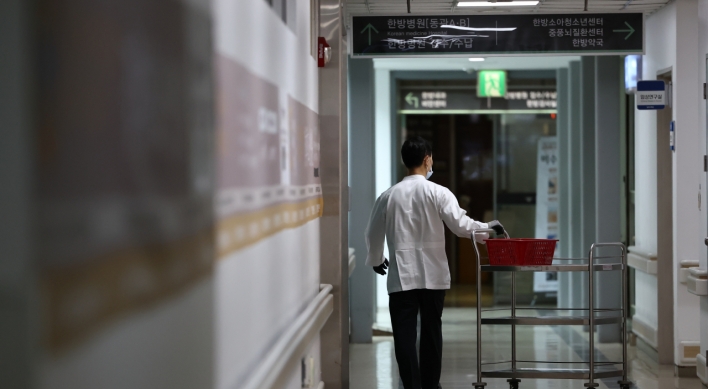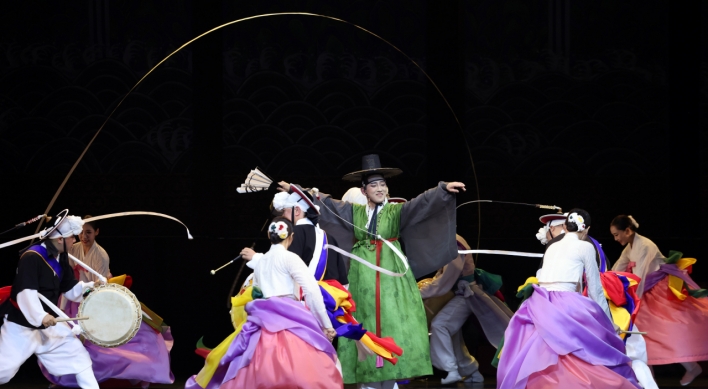N. Korean students are required to study more Korean, English, math than S. Koreans peers
By 임정요Published : July 31, 2016 - 13:28
North Korean students are required to spend more time studying Korean, English and math than their counterparts in South Korea, a report by the state-run educational think tank said Sunday.
The report by the Korea Institute for Curriculum and Evaluation showed that a close examination of the reclusive country's publicized curriculum showed kids were required to allocate more time to the three key subjects compared with students in the South.
The mandatory education system and its assessment report compiled by Kim Jin-sook also showed that North Koreans spent more time at school and that the importance of Korean, English, math and science increases in high school.
The report by the Korea Institute for Curriculum and Evaluation showed that a close examination of the reclusive country's publicized curriculum showed kids were required to allocate more time to the three key subjects compared with students in the South.
The mandatory education system and its assessment report compiled by Kim Jin-sook also showed that North Koreans spent more time at school and that the importance of Korean, English, math and science increases in high school.

"At the middle school level, North Koreans spent 60 hours more studying Korean and 200 hours more studying math, with the North Korean students even spending more school time learning English," the KICE report said.
The numbers reflect the minimum hours a student needs to take to graduate.
It then said while a South Korean high school student will spend about 170 hours on Korean, English and math, a student in the North will have a curriculum requiring 215 hours of Korean, 243 hours of English and 368 hours of math. In the areas of science, a South Korean high school student will need to spend 204 hours, with a North Korean counterpart needing the allocated 799 hours in such fields as physics, chemistry and biology.
The report, however, said that while the North did seem to have longer hours, South Korean data reflected the bare minimum and not the actual time students put into a subject. It added that information coming out of the North cannot be verified independently so its accuracy may be in doubt.
"South Korean students had more leeway to choose subjects, which causes wide shifts," the report claimed.
The report also did not take into account extracurricular studies, which are widespread in South Korea.
Despite the difference, the report outlined that the North seems to be moving toward adopting "international standards," which would make it more akin to South Korea's educational structure.
In 2012, the North changed its 11-year school system to a 12-year one, and separated middle school and high school. It has taken steps to allow students the opportunity to pick some classes, and intensified its English language programs.
On the other hand, the latest assessment made clear that Pyongyang still views education as a tool to sustain the regime.
"The education materials always include propaganda aimed at bolstering the regime, and this kind of indoctrination in children's formative years influence how many think later on," Kim said.
The researcher said these differences in education are something Seoul needs to consider down the line as it seeks unification. (Yonhap)
The numbers reflect the minimum hours a student needs to take to graduate.
It then said while a South Korean high school student will spend about 170 hours on Korean, English and math, a student in the North will have a curriculum requiring 215 hours of Korean, 243 hours of English and 368 hours of math. In the areas of science, a South Korean high school student will need to spend 204 hours, with a North Korean counterpart needing the allocated 799 hours in such fields as physics, chemistry and biology.
The report, however, said that while the North did seem to have longer hours, South Korean data reflected the bare minimum and not the actual time students put into a subject. It added that information coming out of the North cannot be verified independently so its accuracy may be in doubt.
"South Korean students had more leeway to choose subjects, which causes wide shifts," the report claimed.
The report also did not take into account extracurricular studies, which are widespread in South Korea.
Despite the difference, the report outlined that the North seems to be moving toward adopting "international standards," which would make it more akin to South Korea's educational structure.
In 2012, the North changed its 11-year school system to a 12-year one, and separated middle school and high school. It has taken steps to allow students the opportunity to pick some classes, and intensified its English language programs.
On the other hand, the latest assessment made clear that Pyongyang still views education as a tool to sustain the regime.
"The education materials always include propaganda aimed at bolstering the regime, and this kind of indoctrination in children's formative years influence how many think later on," Kim said.
The researcher said these differences in education are something Seoul needs to consider down the line as it seeks unification. (Yonhap)











![[Herald Interview] Director of 'Goodbye Earth' aimed to ask how we would face apocalypse](http://res.heraldm.com/phpwas/restmb_idxmake.php?idx=644&simg=/content/image/2024/05/03/20240503050732_0.jpg&u=)






